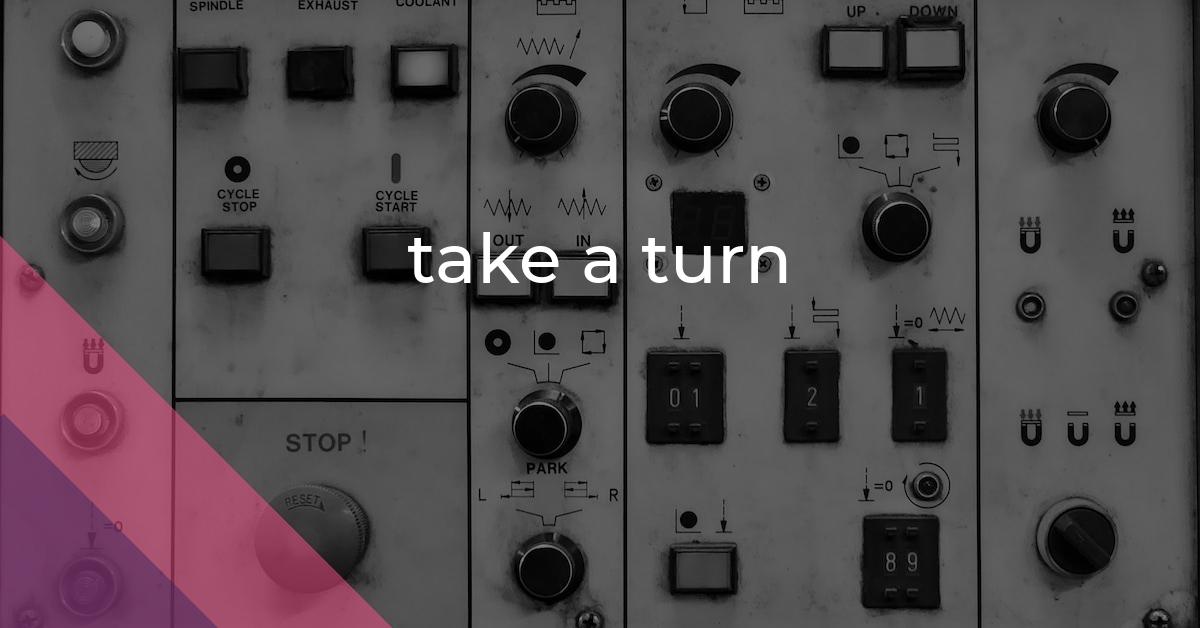take a turn: Idiom Meaning and Origin
What does ‘take a turn’ mean?
The idiom "take a turn" means to change direction or course, often unexpectedly or without prior planning. It can also refer to undergoing a transformation or experiencing a shift in circumstances. This phrase is commonly used in both literal and figurative contexts.

Idiom Explorer
The idiom "take the ride" means to go along with the flow, accepting the unpredictable and uncertain outcomes of a situation without trying to control or change them.
When someone "takes the point," it means they assume a leadership role or take charge of a situation. This idiom is often used in the military or sports contexts, where a person leads the way or sets the direction for others to follow.
The idiom "take the plunge" means to take a significant and often risky step or action, especially when committing to something new or unknown.
The idiom "take the initiative" means to be proactive and make the first move or take action without being prompted or instructed.
The idiom "take something as it comes" means to accept a situation or event without trying to control or change it. It implies a willingness to adapt and deal with circumstances as they unfold.
The idiom "take sides" means to choose or support one person, group, or opinion over another, often in a conflict or disagreement.
The idiom "take one's leave" means to say goodbye or depart from a place or a person.
The idiom "take one's chance" means to seize or accept an opportunity or risk without knowing the outcome. It implies a willingness to try despite the uncertainty or potential for failure.
Decoding Unexpected Pivots
Take a turn is an English idiom with multiple meanings. One primary meaning of this phrase is to change direction or shift towards a different path or course of action. This is often used in the context of a journey or movement, both physical and metaphorical. For instance, someone might say "After studying engineering, he suddenly decided to take a turn and pursue a career in music" to convey the idea of a significant change in direction or life path. This phrase is closely related to the idiom "shift gears," which also refers to changing direction or focus in a sudden and significant way. Just as shifting gears in a car allows you to change speed and direction, taking a turn in life or a project allows you to navigate new paths and explore different opportunities.
Another meaning of take a turn is to experience a sudden change in circumstances, often for the worse. This can refer to an unexpected and negative turn of events, such as "His health suddenly took a turn for the worse" or "The conversation took a sharp turn towards hostility." In both cases, the phrase conveys the sudden shift or change of situation. This idiom connects closely to the expressions "take a turn for the better" and "take a turn for the worse." When things take a turn for the better, it means that they have improved or become more positive. On the other hand, when things take a turn for the worse, it means that they have deteriorated or become more negative. These idioms highlight the unpredictable nature of life and how circumstances can change in an instant, either improving or worsening. It's important to remember that even when things take a turn for the worse, there is always the potential for them to take a turn for the better.
The idiom can also be used to describe taking one's turn or having a chance to do something. In this sense, it implies a fair and equal opportunity. For example, if someone says "Everyone should take a turn speaking during the meeting," it means that each person should have a chance to share their thoughts or opinions. This notion of taking turns is closely related to the idiom "take the wheel," which means to take control or take charge of a situation. When you take the wheel, you are actively participating and leading. Whether it's taking a turn to speak during a meeting or taking the wheel in a challenging situation, these idioms emphasize the importance of active engagement and shared responsibility.
Furthermore, take a turn can indicate a change in behavior, often towards the negative or unexpected. For instance, "He used to be a reliable employee, but lately, he has taken a turn for the worse" suggests a decline in performance or behavior. This idea of a sudden change in behavior is closely related to the concept of shifting gears. Just as shifting gears in a car changes the way the vehicle operates, taking a turn in behavior alters how one appears or presents themselves. These idioms remind us that people and circumstances can change, sometimes in unexpected ways. It is essential to remain adaptable and open to new possibilities, even when faced with shifts or changes in behavior.
The origin and etymology of take a turn are not well-documented, and there is limited information available regarding the exact historical background of this idiom. However, it is likely rooted in the concept of physical turning or changing direction, which has been metaphorically extended to various aspects of life. Despite the lack of concrete historical context, the idiomatic expressions of taking a turn continue to be widely used in the English language. This versatility provides a colorful way to express various aspects of human experiences and situations, whether it's embracing change, managing unexpected shifts, or ensuring equal opportunities for all.
Example usage
Examples of how the idiom "take a turn" can be used in a sentence:
- After walking for a while, we decided to take a turn down a different path.
- The weather suddenly took a turn for the worse, and it started raining heavily.
- I thought she was going to agree with me, but she took a surprising turn and disagreed.
More "Verb" idioms



